Alive Blog
Vitamin D
A ‘must’ supplement for UK residents
Vitamin D, often referred to as the “sunshine vitamin,” is unique because our bodies can produce it naturally when our skin is exposed to sunlight. Unfortunately, due to the UK’s high latitude and unpredictable weather patterns, the amount of sunlight available throughout the year is limited.
This leads to a significant risk of vitamin D deficiency among the population, making supplementation essential.

The role of Vitamin D
Vit D plays a fundamental role in various bodily functions, including:
Enhancing bone health
Vit D aids in the absorption of calcium and phosphorus, two minerals vital for maintaining strong and healthy bones. It helps regulate the levels of these minerals in the bloodstream, reducing the risk of conditions such as osteoporosis and fractures. Vit D deficiency has been associated with an increased risk of bone-related disorders, making supplementation crucial, particularly for individuals who have limited sun exposure.
Supporting immune function
A robust immune system is crucial for defending against infections and diseases. Vit D helps modulate the immune response, assisting in the prevention of respiratory tract infections, autoimmune disorders, and even certain cancers. Research has shown that vit D plays a vital role in activating immune cells and enhancing their ability to identify and destroy pathogens. Adequate Vit D levels can contribute to a stronger immune system, especially during the winter months when respiratory infections are more prevalent.
Promoting mental well-being
Studies have linked low vit D levels with an increased risk of depression and seasonal affective disorder (SAD). SAD is a type of depression that typically occurs during the winter months when sunlight exposure is limited. Supplementing with vit D may alleviate symptoms of these conditions and support overall mental well-being. Vit D receptors are found in areas of the brain associated with mood regulation, and adequate levels of this vitamin are thought to enhance the production of serotonin, a neurotransmitter that contributes to feelings of happiness and well-being.

Enhancing heart health
Adequate vit D levels have been associated with a reduced risk of cardiovascular diseases, including hypertension, heart attacks, and strokes. Vitamin D helps regulate blood pressure and supports healthy blood vessel function. It also plays a role in controlling inflammation, which is a contributing factor to the development of heart disease. Research suggests that maintaining optimal vit D levels can promote cardiovascular health and reduce the risk of adverse cardiovascular events.
The Synergy of Vitamins D and K
Vitamin K, often overlooked but equally important, works synergistically with vit D to maintain optimal health. Here’s how they complement each other:
Healthy bones. While vit D promotes calcium absorption, vitamin K ensures that calcium is properly utilized in the bones and teeth. Together, they help maintain bone density and strength, reducing the risk of fractures. Vitamin K activates specific proteins responsible for binding calcium to the bone matrix, preventing its accumulation in soft tissues. This mechanism is essential for preventing conditions like osteoporosis and calcification of blood vessels.
Cardiovascular health. Both vitamins D and K contribute to cardiovascular health. Vit D aids in regulating blood pressure and reducing arterial stiffness, while vitamin K helps prevent the calcification of arteries, reducing the risk of cardiovascular events. Research suggests that low levels of vitamin K are associated with an increased risk of coronary artery calcification, which is a marker for heart disease. The combined effects of vitamins D and K can help maintain the health and flexibility of blood vessels, promoting optimal cardiovascular function.
Blood clotting. Vitamin K plays a critical role in blood clotting by activating certain proteins involved in the process. Vit D also contributes to this process by promoting the production of clotting factors. Maintaining a balance between these vitamins is vital for proper blood clotting function. While excessive vitamin D intake can lead to increased clotting, adequate vitamin K levels help regulate this process, ensuring it remains balanced and optimally functioning.
Supplementing with care.
While vit D supplementation is beneficial for individuals in the UK, it’s essential to approach it responsibly. Here are a few considerations:
a) Consult with a Healthcare Professional: Before starting any supplementation regimen, it is advisable to consult with a healthcare professional who can assess your individual needs and provide appropriate recommendations. They can evaluate your current vitamin D levels through a blood test and guide you in determining the right dosage and timing for your specific needs.
b) Dosage and Timing: The recommended daily intake of vitamin D varies depending on age, health status, and sun exposure. Healthcare professionals can guide you in determining the right dosage and timing for your specific needs. In the UK, the National Institute for Health and Care Excellence (NICE) recommends a daily intake of 400 international units (IU) of vitamin D for adults and children over one year of age, and higher doses for those at increased risk of deficiency.
c) Vitamin K Combination: When taking vitamin D supplements, it’s important to ensure an adequate intake of vitamin K as well. Consuming foods rich in vitamin K, such as leafy green vegetables (kale, spinach, broccoli), fermented foods (natto, sauerkraut), and animal products (egg yolks, liver), can help maintain the balance between these two vitamins. Alternatively, your healthcare professional may recommend a combined vitamin D and K supplement.
For those living in the UK, where sunlight can be scarce, vitamin D supplementation is of utmost importance to support overall health and well-being. Its role in bone health, immune function, mental well-being, and heart health cannot be understated. It’s cheap, easy to take and with basically unexistent contraindications. Additionally, understanding the complementary relationship between vitamin D and vitamin K allows us to optimize their benefits and promote a healthier lifestyle. Remember to consult with healthcare professionals to ensure proper dosage and guidance.
Dr. Edoardo Elisei DC
Alive Chiropractic LTD
alivechiropractic.co.uk
1C Crown Gate Square
01305602314
POUNDBURY
08/07/2023
